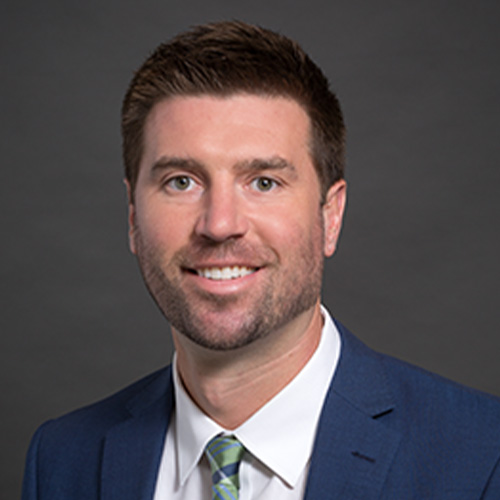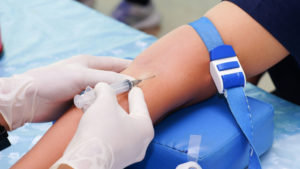Recent data released from the Centers for Disease Control & Prevention (CDC) shows that one in four high school students are feeling persistently sad and hopeless, and nearly one third are struggling with poor mental health.
As a child and adolescent psychiatrist, I am seeing an increase in mental health issues like depression and anxiety in youth of all ages. My goal is to share information and resources to help parents and their children. This can help families identify proactive measures and know when to seek help.
5 Ways You Can Promote Good Mental Health
It’s important for parents, caregivers and our youth to know there is hope, there is help, and there absolutely can be healing. Here’s what you can do to encourage healthy mental wellbeing.
Focus on Lifestyle
Positive lifestyle practices are incredibly important in development and general health of our youth. Good physical health promotes good mental health and vice versa. Encouraging good sleep habits, exercise and well-balanced meals is a great way to promote physical and mental wellbeing.
5-4-3-2-1 Grounding Exercise
During periods of anxiety or panic, this strategy can help your mind focus in the present. This is especially helpful when your mind may be bouncing from thought to thought. To do this exercise, focus on:
- 5 things you can see
- 4 things you can hear
- 3 things you can touch
- 2 things you can smell
- 1 thing you can taste
Encourage the Arts
Listening to music, creating crafts, drawing, coloring and painting are positive for our mental health.
Practice Relaxation & Meditation
Relaxation techniques and meditation can make teens feel calmer, reduce stress and build self-awareness. By creating time for self-reflection and self care, these practices can help people struggling with mental health manage their feelings.
4-7-8 Breathing Technique
This creates calmness by regulating your heartbeat and breathing. Here’s how you do it:
- Close your mouth, inhale through nose, counting to 4
- Hold breath, counting to 7
- Exhale through your mouth, making a whoosh sound, counting to 8
- Repeat process three more times
Know Your Child & Look For Changes
Symptoms of depression and anxiety can vary from person to person and even day to day, so how do we distinguish “normal development” from potential mental health concerns? The first step is to know your child well enough to understand what their “baseline” is. This will give you a comparative perspective when trying to discern if there is a reason to be concerned. Things to look for include:
- Decline in grades
- Change in sleep habits, eating habits or friend groups
- Increase in oppositional behaviors
- Concern of substance use
- Changes in level of isolation or withdrawal tendencies
Talk With Your Teen
Communication is the best way to strengthen the trust and connectedness between you and your child. As you open the lines of communication with your teen:
- Show support
- Be compassionate
- Seek to understand
- Avoid questioning or suggesting that your child’s concern could be a personality flaw or character trait issue
- If your child is unwilling to open up to you, offer them help in finding a trusted person to share their struggles with instead
- Be prepared to talk about possible next steps, which may or may not include treatment
Sometimes it can be had to start a conversation. You might be afraid of saying the wrong thing or just having trouble getting more than a one-word response. If you find yourself in this situation, here is a suggestion to open the conversation:
- “I’ve noticed you haven’t seemed like yourself lately. How can I help?”
- “I care about you and am here to listen. Do you want to talk about what’s going on?”
When to Seek Help
If you find yourself in a situation where communication and other resources you try are not effective, your child may benefit from a mental health evaluation and treatment. Treatment may include counseling sessions, Cognitive Behavioral Therapy, medication, coping strategies and more. The most important aspect is that the plan be specific to your child and their needs.
If you are concerned about suicidal thoughts, it’s okay to ask if they are having these thoughts. Asking the question doesn’t give someone those thoughts. Rather, it gives them an opening to express feelings they may be having.
If you have an immediate concern for your child’s safety, do not leave them alone. Warning signs indicating an immediate concern include:
- Talking or writing about death, dying or suicide
- Thinking about or threatening self-harm or suicide
- Seeking access to means of suicide, such as gathering pills or weapons
- Giving away prized possessions
- Feeling hopeless, helpless, worthless or trapped
In these situations, it’s best to call 988, a suicide prevention lifeline, and lock up any potentially lethal objects. Children who are actively trying to harm themselves should be taken to the closest emergency room. Police and rescue personnel can assist with this if they are unwilling.
Additional Resources
At Bryan Health, we have a wide array of resources available to you. Visit our teen resources website to learn about self-confidence tools, suicide prevention, community resources, substance abuse, finding a mental health provider and more!
Learn more about Bryan Psychiatry services and available resources, or take an online screening today.

Matt Wittry, DO
Child and Adolescent Psychiatrist, Bryan Psychiatry
As a child and adolescent psychiatrist, Dr. Wittry’s focus is working with youth and their families to help create positive change. The most important part of this process is building relationships and trust with you. This includes actively listening to you and your child and knowing the right questions to ask to fully understand and evaluate areas of concern. Through this evaluation, a diagnosis is made. Then, you will work together with Matt to develop a treatment plan to meet the unique needs of your child and family.
Dr. Wittry’s approach includes working with your child and you as the parent. He will also include any other individuals you feel would be helpful such as teachers, caregivers, etc. Depending on the child and situation, he will meet with you as a group and also with the parents and child individually.
His specialty is working with children and teens, and their families, to help in areas such as:
- Depression, anxiety and bipolar disorder
- Anger management/defiant, oppositional behaviors
- Attention deficit hyperactivity disorder (ADD/ADHD)
- Autism spectrum and intellectual/developmental concerns
- Abuse and PTSD (post traumatic stress disorder)
- Eating disorders
- Behavior and school problems
- Pattern of mood swings
- Significant life changes and relationship difficulties
Treatment involves evidence-based care and a holistic approach. This may include a combination of medication management, coordination of care with other therapies, and learning and developing new skills.









